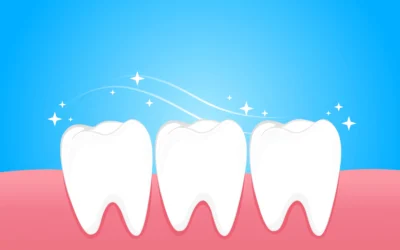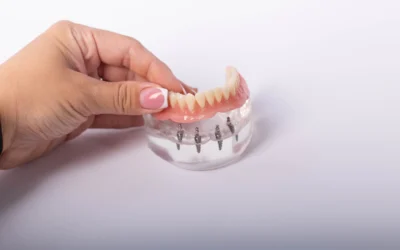By the time you have lived four or five decades on this Earth, you may be missing a few things – your hair, your appendix, your energy, and perhaps a tooth or two. While we can’t help you recover the youthful energy you enjoyed in your twenties, we can help you fill the gaps in your smile, boosting your confidence and helping to keep your mouth healthy and happy.
Problems With Missing Teeth
Unfortunately, our teeth can be casualties of sports, infection, or accidents. While every person’s situation is different, the reasons why you should fill the gaps in your perfect set of pearly whites are the same.
Our teeth are underappreciated champions. They do much more than help us chew our food. They help us speak and form words correctly. They support our jawbone and facial muscles. And, when they are all present, they keep each other in line and work together. It is not until one tooth deserts his post or goes missing that we notice the void.
The gap left by a missing tooth can be a problem if you let it remain empty. Not only do you have one less tooth to chew your favorite foods, but you have a gummy pocket to catch food particles and bacteria that can lead to infection. Surrounding teeth can begin to invade the empty space, causing your upper and lower teeth to misalign. And, without the root of that tooth firmly planted in your jawbone, the bone itself can begin to deteriorate.
Your best option to maintain a healthy mouth and smile are to make a dentist appointment to discuss options for filling that space with a new tooth.
Filling the Gaps
Whether you are missing one tooth or several, your options for filling the space are bound to include two popular choices – dental implants or dentures. Both implants and dentures offer you a great path toward a beautiful smile in slightly different ways.
Dentures
We know dentures often get a bad wrap. The thought of taking your teeth in and out might not be enticing. But before you rule them out completely, let’s talk about the pros and cons.
Think of dentures like a prosthetic dental appliance. Made to look and function like your own teeth, they are a stand-in for the teeth that are no longer there. Dentures are custom-molded out of acrylic resin and made to fit your mouth. Full dentures take the place of all of your teeth, while partial dentures fill in for just a few.
Dentures are a great option if you want your smile back but have a limited budget. Because they are a wearable appliance, you do not need any dental work to get your next set of teeth made. Your dentist will need to take impressions of your gums and surrounding teeth to make a temporary set of dentures. After adjusting them to fit your mouth and bite precisely, your dentist can make a final set. This non-invasive process is relatively fast and convenient. They will only need periodic adjustments to maintain their look and feel.
Because dentures are not permanently fixed to your mouth, they can cause irritation or move during the day. However, a well-adjusted set of dentures works well for many individuals. Many patients choose dentures to avoid the time-consuming and costly process of getting implants. Aging individuals may also be better candidates for dentures because their jawbone may not be strong enough to hold the dental implants in place as they age.
Dental Implants
Since they were introduced in the 1960s, implants have become popular, especially among younger people who will spend many years with their new teeth. Because placing dental implants in the jawbone is a specialized procedure, it costs more and takes more time to complete. However, it may be worth it for a more permanent solution to your missing teeth.
If you are considering having dental implants, it is important to talk to your dentist first about whether or not you are a good candidate for the procedure. The first step to getting dental implants is placing a titanium post in the jawbone. This post is the foundation for your new tooth. If your jawbone is not healthy and strong, it won’t be able to hold the post and your new tooth firmly. A bone graft can sometimes be an excellent way to strengthen your jaw to hold the post.
Once the post has been placed in your jaw, it will need time to heal. Giving your bone a few months to heal around the post is vital to a strong, successful implant. Once your dentist decides the post is firmly in place, an abutment can be added to the post. The icing on the top is the crown. This last piece will look and feel like the rest of your teeth and will allow you to chew and talk to your heart’s content.
Getting dental implants often requires the specialties of an oral surgeon and your dentist. If you and your dentist decide implants are the best option for you, ask who they recommend you see to begin the implant process. Like most dentists, we know some great providers who can make getting implants a breeze and are happy to provide you with a referral.
Which option is better?
Deciding whether you should get dentures or dental implants is a very individual decision. If your mouth and jaw are healthy and strong, you may enjoy the permanence and comfort of replacing your former teeth with new ones that perform, feel, and look the same. On the other hand, you may not want to spend thousands of dollars and hours in a dental chair to replace a mouthful of teeth. Dentures work well for many patients and cost much less.
Regardless of the option you and your dentist choose for you, remember to take good care of your teeth. If you have dentures, you should remove them every night and soak them in clean water or a denture cleaner. During the day, remove them and brush away food particles that can get caught in and around your teeth and gums. Doing this regularly will help to cut back on bacteria and irritation.
You should brush, floss, and rinse your dental implants as you would any other tooth. And take them to the dentist from time to time for deeper cleaning. Treat them well, and they will serve you well for years to come.



